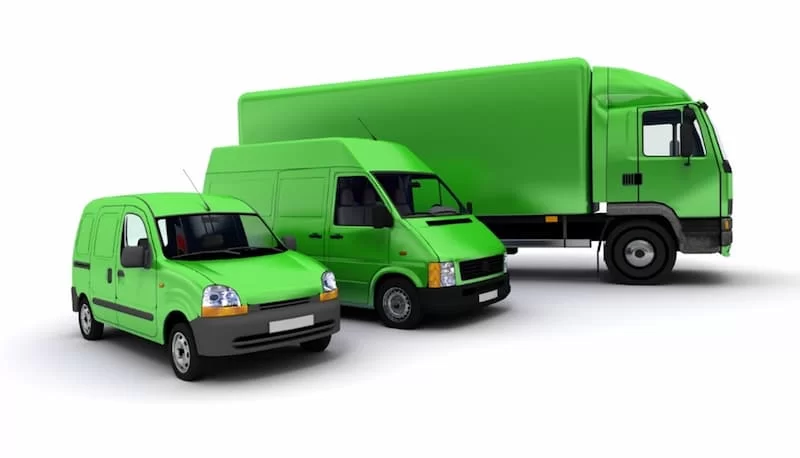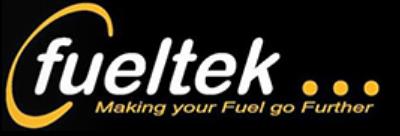 Add My Company
Add My Company

2023 showed the commercial fleet industry how vital it is to begin effective decarbonisation strategies in a post-pandemic economy. The significant rise in demand for transport and logistical services over last year instigated a similar increase in HGVs on the roads (23.3% compared to 2022).
With roughly five thousand extra vehicles working on our roads, the industry’s current efforts to reduce carbon emissions are at risk of being undone without support. New, stronger strategies are needed to not only maintain our success but further improve the sustainability of our sector in the coming year.
Read to discover the trailblazing efforts of the new Council for Net Zero Transport and what actions your fleet should take to decrease your carbon emissions this year.
What is the Council for Net Zero Transport?
Various areas of the UK economy have been working to reduce their environmental impact for years, and in 2024, the newly formed Council for Net Zero Transport is looking to make a significant impact on transport fleets nationwide. This governing body was established as recently as February 1st 2024, convened by Zemo Partnership and chaired by Lord Deben, the former environment secretary and chair of the UK Climate Change Committee.
Their goal is to encourage engagement between all areas of the nation’s vehicular industry and build relationships between academics, commercial fleets, and government members so each area can make informed decisions about reducing our environmental impact without sacrificing productivity.
Lord Deben has said, “Our generation faces no greater challenge than that of tackling climate change. With transport responsible for over a quarter of the UK’s greenhouse gas emissions, if we’re going to solve this problem, we have to decarbonise transport effectively. We must do this for our environment, and we will reap the rewards both politically and economically from doing so.”
Welsh Fleets Trial Pioneering Strategy
This council, with support from the Zemo Partnership, quickly announced an experimental decarbonisation program trialled with Welsh businesses that operate both light and heavy-duty commercial vehicles. This programme will experiment with many ideas but focus heavily on the implementation of sustainable fuels and the potential of hydrogen in the distant future.
Lee Water, deputy minister for climate change in the Welsh government, commentated on this plan, saying, “We’re excited by the potential of this project to stimulate and accelerate the decarbonisation of commercial vehicles in Wales, which we view as a key challenge on our path to net zero.”
Additionally, Zemo Partnership’s Chair, Philip Sellwood CBE, said, “The new Council for Net Zero Transport and the invitation to work alongside the Welsh Government have come at a key time in transport’s decarbonisation transition. Time will tell how effective this program is, but we are confident that it will have a positive impact that will resonate across the rest of the UK”.
UK Fleet Decarbonisation Methods
We at Fueltek agree that this year is a key time for fleet decarbonisation. However, from what we have observed across the nation’s transport and logistics sector, there is already significant potential for the UK’s fleets to take action and make effective improvements to their decarbonisation efforts. This could be by investing in sustainable fuels and additives and improving driving techniques. Here are some methods already available that will make a positive change.
Efficient Onsite Fuel Usage Management
Investing in onsite fuel management systems provides increased control over how your purchased fuel is used. This is achieved by installing a system like our complete fuel management package that includes the following equipment to fulfil your fleet fuel needs:
This comprehensive solution provides everything you need to store fuel purchased wholesale at your fleet’s base of operations and then dispense it to your vehicles on site. This eliminates your driver’s reliance on forecourt prices and fuel cards, and as a result, fuel is used significantly more efficiently, reducing carbon emissions and reducing waste. Additionally, by integrating our advanced fuel monitoring software into your new infrastructure, you can track this usage and confirm that you use fuel as efficiently as possible.
Investing Sustainable Fuels
Sustainable fuels are the future of green fleets, which is why our products are capable of storing several options for your fleet and immediately reducing your work’s environmental impact. Here are two examples of what can be stored.
- HVO is a renewable diesel-like fuel derived from processing renewable waste lipids through hydrotreating. HVO has gained popularity as a sustainable alternative to fossil-derived diesel fuel. It reduces greenhouse gas emissions and is used in diesel engines without modifications.
- AdBlue is a substance designed to reduce the harmful nitrogen oxide (NOX) emissions from diesel engines. AdBlue is stored in a separate tank from the vehicle’s diesel fuel and is released into the hot exhaust stream, where it eliminates the harmful impurities of the missions to leave just nitrogen and water. This has the beneficial result of reducing the impact of exhaust on the environment.
Update Driver Training
The most immediate method to reduce the emissions of your fleet is by retraining your drivers on up-to-date driving attitudes that will lower their overall fuel usage. High-performance metrics and updated training work together to eliminate the bad driving habits that create costly and unsafe working practices. For example, vehicle idling increases consumption unproductively. This may seem like a slight increase at first, but over time, as these habits increase in frequency, a significant amount of fuel will be wasted across your fleet.
There are several areas related to driver training to explore, but in the context of sustainability, establishing eco-driving is the highest priority. Here are the core concepts to implement:
- Driving smoothly – Drivers are encouraged to anticipate changes in the ebb and flow of public traffic and avoid any dramatic braking or acceleration, unless necessary, for the safety of road users. More gradual speed changes will increase fuel efficiency.
- Limit accelerator use – When approaching a downhill area, drivers are encouraged to remain in gear but remove their foot off the accelerator at the earliest safe opportunity. This activates a fuel cut-off switch for many vehicles and prevents fuel usage until the accelerator is used again.
- Avoid Excess speed – Higher speeds significantly increase fuel usage and will inevitably lead to more brutal breaking and not smooth driving.
These training examples will have a noticeable effect on your fuel usage very quickly, both helping the environment and lowering your fuel expenses, but the impact is multiplied when combined with the previous two methods and investing in sustainable fuels stored onsite.
Sustainable Fuel Management Solutions at Fueltek
At Fueltek, we are committed to helping businesses adapt to changes quickly. By partnering with us, businesses confidently navigate the challenges of this rapidly shifting landscape, optimising their operations to include new green initiatives. Contact us to discuss your fleet’s needs further and discover how we will help.
For more information on Commercial Fleet Decarbonisation Strategies for 2024 talk to Fueltek Ltd

